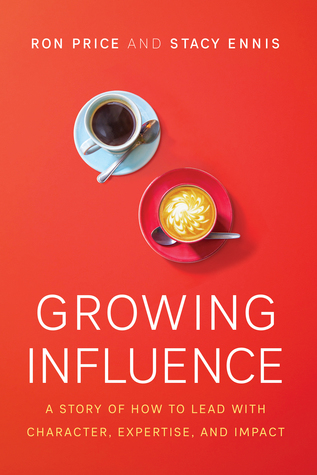More on this book
Kindle Notes & Highlights
“I think I see what you mean. When I focus on an area of control, like time, I have space to think more, to be more strategic and thoughtful. I can think creatively around how I can influence through collaboration and execute my part of the collaboration. And by giving my time and energy to control and collaboration, I stop worrying about the things I can’t control, the area of concern.”
The core idea of the three dimensions of leadership is that influence is leadership, and a leader’s true influence is some combination of all three dimensions. Each of these dimensions of leadership has separate measures of integrity.”
Maximum power is often a matter of timing. If you don’t pick the right time, you won’t get the results you’re looking for. There will be a right time for you to speak to your boss with clarity, but it’s important to figure out when that time is. It’s not just about knowing what to say; it’s understanding when to say it.”
“Lead with logic, follow with emotion.
see integrity in character leadership as staying connected to my values, even in frustrating, challenging, or difficult situations. To me, character leaders are people I respect because of the way they treat other people, stay true to their word, and live ethically. They often have strong convictions, but they don’t express them as divisive opinions-as-facts.
“you’re learning one of the most valuable lessons about how a leader uses emotional intelligence to influence others. Of course, there’s a lot more to emotional intelligence than awareness and managing your own emotions; it’s also being able to understand and work with other people’s emotions. That’s what you did in that meeting.”
to mention your personal relationships and parenting. Too many leaders don’t define their values, and someday they get a big title and a lot of authority, but they’re unsatisfied because the route they chose to get there isn’t connected to how they want to govern themselves or relate to others. They haven’t defined their values, and because of that, they’re highly vulnerable to failure.
“Values are aspirational. They point the way to who we want to become. It’s not about perfection; it’s about continual pursuit. Character isn’t something you ‘achieve’ or ‘finish.’ You’ll spend a lifetime building it.”
“The first way to define integrity in expert leadership is, does my expertise actually create real value for others? Does it improve someone’s life, solve a problem, or help them advance in some way? Because it’s not really leadership expertise if it’s not creating something for others.”
Maintaining integrity in expertise means staying current.
“I think the biggest thing is to grow others. I know I can rely on you, but I don’t always feel like I can rely on your team. I notice you picking up their slack sometimes, and I’d like to see you inspire and train the people below you to perform at the same level as you.”
“Great leaders inspire people to make commitments they wouldn’t otherwise make.
one of the greatest satisfactions you’ll get as a leader, when someday you can look back and see how you challenged or affirmed someone, and they took the next step and the next. You’ll get great joy out of playing a part in their success by inspiring them to make a commitment they wouldn’t have made otherwise.”
Instead, they’re driven by the opportunity to make a difference.”


